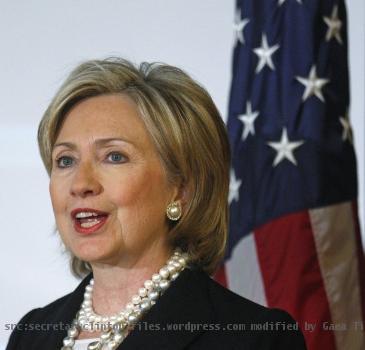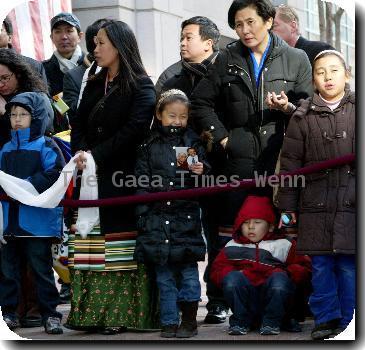Holbrooke: al-Qaida ally ‘targeted’ international conference in Afghanistan
By David Stringer, APFriday, July 23, 2010
Holbrooke: al-Qaida ally ‘targeted’ Kabul summit
LONDON — An al-Qaida ally targeted this week’s top-level international conference on Afghanistan’s future, the U.S. special envoy to the region said Friday.
The Haqqani network, which directs operations against U.S. and coalition forces in Afghanistan from safe havens in Pakistan, is a “real problem,” Richard Holbrooke, special representative to Afghanistan and Pakistan told reporters in London.
The network, believed to be the Taliban faction with the closest ties to al-Qaida, has attacked the Indian Embassy and tried to destroy a national peace conference last month with rocket attacks, he said. In addition, “we know they were targeting the building we were meeting in a few days ago in Kabul, with the largest group of foreign leaders assembled in Kabul since the 1970s,” he said.
He did not specify how the Tuesday meeting, which included Secretary of State Hillary Clinton, Holbrooke and British Foreign Secretary William Hague among the representatives of about 60 countries, was targeted. A huge security crackdown prevented the Taliban from launching any major attacks during the conference.
Holbrooke’s comments come as the U.S. presses for tougher action against the Haqqani network, and the day after the U.S. Treasury Department sanctioned three insurgent leaders, including an emissary for the group. The U.S. has said Islamabad’s reluctance to move into the group’s base in North Waziristan is hampering the Afghan war effort.
Though other militant groups, including Hekmatyar, operate from North Waziristan on Pakistan’s northwest frontier, dealing specifically with the Haqqani group is the most pressing task, Holbrooke said.
“Everyone talks about North Waziristan, but what we talk about is the Haqqani network,” Holbrooke said.
The U.S. Treasury Department on Thursday sanctioned three insurgent leaders, including Nasiruddin Haqqani, an emissary for the Haqqani Network and brother of Sirajuddin Haqqani who leads the group with his father, Jalaluddin.
Holbrooke did not elaborate on whether he believed enough was currently being done by Pakistan to take on the network — but insisted Islamabad has a crucial role in ending the Afghanistan conflict.
“It’s a very complicated relationship, but it is an indispensable one for Great Britain and the United States and very much at the top of the U.S.-U.K. agenda is how to work together with Pakistan to make Pakistan part of the solution to the problems of the region — because without Pakistan’s participation, this war could go on indefinitely,” Holbrooke said.
The envoy said ties between Pakistan and the West had greatly improved in recent months, bringing “much more cooperation at every level” in dealing with the Afghan conflict.
“I don’t want to mislead you,” Holbrooke said. Levels of cooperation are “not yet where we hope it will be.”
Holbrooke insisted that U.S. has no current role in tentative efforts on reconciliation between Afghan President Hamid Karzai’s government and Taliban militants, seen by many analysts as a precondition for a political solution to the war.
“As for reconciliation — it’s out there somewhere, we’ve talked about it and the United States will support Afghan-led reconciliation,” Holbrooke said. “By that we mean that we need to know what is going on, and not much is going on now and nothing is going on involving the United States.”
“We have very strong red lines, and I cannot stress these red lines enough … anyone involved in such a process must break with al-Qaida publicly, lay down their arms, accept the constitution — and that’s with special attention to minorities and women’s groups,” he said.
Holbrooke said the former U.N. representative in Afghanistan Kai Eide — who claimed in March that Pakistan’s arrests of high-ranking Taliban leaders had closed off a secret channel of communications with insurgents — had likely exaggerated the scale of contacts with the Taliban.
“Kai Eide was advertising contacts with the Taliban that essentially barely existed, there were some marginal ones,” Holbrooke said.
Tags: Afghanistan, Asia, Central Asia, England, Europe, Hillary Clinton, Islamabad, Kabul, London, North America, Pakistan, South Asia, Summits, United Kingdom, United States, Western Europe

